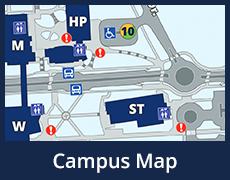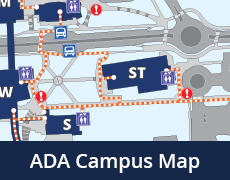Policy Number: I-2
Last Reviewed: July 25, 2024
Responsible Dept.: Vice President of Academic & Workforce Solutions
A signed copy of this policy is available in the President’s Office.
Purpose
To promote fairness in institutions of public higher education while meeting the financial and academic needs of the diverse VWCC student population. To promote access to information about textbooks, including costs, among faculty and students and have procedures in place that encourage the adoption of low-cost commercial textbooks and no-cost open textbooks in compliance with § 23.1-1308 of the Code of Virginia amended in 2019. (Note: The letters below correspond to location in the Code of Virginia document)
Policy
An Act to amend the Code of Virginia relating to textbook sales, bookstores, and open educational resources (OER) at public institutions of higher education passed and was effective March 18, 2019. A summary of the new guidelines follow:
- The Act prohibits employees at Virginia public institutions of higher education from demanding or receiving any payment, loan, subscription, advance, deposit of money, services or anything, present or promised, as an inducement for requiring students to purchase a specific textbook required for coursework or instruction. An exception allows the employee to receive (i) sample copies, instructor’s copies, or instructional material, not to be sold; and (ii) royalties or other compensation from sales of textbooks that include such instructor’s own writing or work.
- The measure also requires the governing boards at public institutions of higher education to implement procedures for making available to students in a central location and in a standard format on the relevant institutional website listings of textbooks required or assigned for particular courses at the
institution. - The measure requires that institutions maintaining a bookstore supported by auxiliary services or operated by a private contractor must post the listing of such textbooks when the relevant instructor or academic department identifies the required textbooks for order and subsequent student purchase.
- The Act requires the governing boards to implement policies, procedures, and guidelines that encourage efforts to minimize the cost of textbooks for students while maintaining the quality of education and academic freedom.
- The governing board of each public institution of higher education is required to implement guidelines for the adoption and use of low-cost and no-cost open educational resources in courses offered at such institutions. Such guidelines may include provisions for low-cost commercially published materials.
- The Act requires the registrar or another appropriate employee of each public institution of higher education to identify conspicuously in the online course catalogue or registration system, as soon as practicable after the necessary information becomes available, each course for which the instructor exclusively uses no-cost course materials or low-cost course materials.
Procedure
The following are guidelines for selection of textbooks:
- Textbook adoptions are made by departments in each academic school, generally, on a three-year cycle. (D4) Textbooks should be used for at least three academic years to allow for the availability of used textbooks. A new adoption may be made earlier in consideration of academic quality, changes in the field, or where the current edition can no longer be procured from the publisher.
- (D1) Textbook adoptions are made by each academic school with sufficient lead time to the Bookstore so as to confirm availability of the requested materials and, where possible, ensure maximum availability of used textbooks. (The Bookstore requires textbook list four weeks prior to the start of enrollment each semester and Access orders six weeks prior to enrollment).
- Full-time faculty are responsible for selecting textbooks for courses in their discipline. However, all sections of a course will use the same textbook unless otherwise approved by the academic dean. In disciplines where there is no full-time faculty member, the academic dean or program head will consult with the adjunct faculty for textbook selection.
- (D2) In the textbook adoption process, the intent to use all items ordered, particularly each individual item sold as part of a bundled package, is confirmed by faculty adopters before the adoption is finalized. If the faculty member does not intend to use each item in the bundled package, he or she shall notify the bookstore, and the bookstore shall order the individualized items when their procurement is cost effective for both the institution and students and such items are made available by the publisher.
- (C, B, F) An administrative and office specialist in each academic school will enter the textbooks and learning materials used in each class into the bookstore’s software program. This provides notice to the bookstore and makes that information available to students on the college website including book ISBN numbers. Additionally, the administrative and office specialist will identify courses whose learning material requirements are OER (no cost) or LT40 (less than $40) in PeopleSoft. Those designations will appear on the college website.
- (D3, D5) All course outlines must include the textbook and ISBN number and if no textbook is used or if a low-cost/no-cost textbook is used, it must be stated. The syllabus for each class will name the required course materials along with the bookstore cost of these items or the range of costs given the many textbooks can be purchased new, used, or rented. The syllabus should also mention the Educational Foundation’s Student Book Fund and that some items may be available on reserve in the library.
- The college works collaboratively with the Bookstore to reduce the cost of textbooks to students. Faculty should consult the Bookstore to determine available options for learning materials and how costs for students can be minimized.
- Faculty can contact Brown Library to learn more about Open Educational Resources (OER) options and the availability of low-cost or no-cost materials.
- When working with publishers to make adoptions, faculty should carefully consider the various options. The following guidance is provided to ensure that college employees make a selection that is cost effective for the student.
- The traditional textbook is often the choice with the lowest total student cost because it can be purchased and sold back multiple times throughout the life of the edition.
- Bundles consist of a textbook with ancillary materials such as CDs, DVDs, pass codes, study guides or other items. Bundles may be more cost effective for students, but only when the materials cannot be purchased separately or the purchase price of a bundle is lower than the cost of a used text and the separate purchase of the pass code and/or other components. Bundles offer the best value when the content is integrated into the course and the use of the ancillary materials is required by faculty.
- In the case of custom published products, content can be reorganized and additional faculty-created content can be added. The price is typically lower than traditional texts, since students pay only for the content that is included and publishers can count on higher sales because of the uniqueness of the content; however, if a faculty member is not committed to using the textbook for multiple terms it may diminish a student’s ability to participate in the buyback program and can increase the price to students overall due to the inability to return any textbooks that are not purchased to the publisher by the bookstore.
- An ebook is a digital version of the printed textbook and is usually priced at about 50% of the cost of the printed textbook. Faculty may allow the purchase of an ebook version of the text in place of a print textbook option, along with rent-a-text options.
- Loose-leaf versions of textbooks are sold at a lower retail price than traditional texts because they are unbound paper versions of the textbook. Although the student incurs less expense at the time of purchase, they also incur the cost of a binder, and most loose-leaf textbooks cannot be sold during buyback or purchased used.
Contact Us
540-857-VWCC (8922)
24/7 Student Support Center
855-874-6690
TTY: All users 711
Address:
3094 Colonial Ave., SW
Roanoke, VA 24015
VWCC Alerts
We use the VW Mass Notification System to immediately contact you during a major crisis or emergency. Get more info and register!



